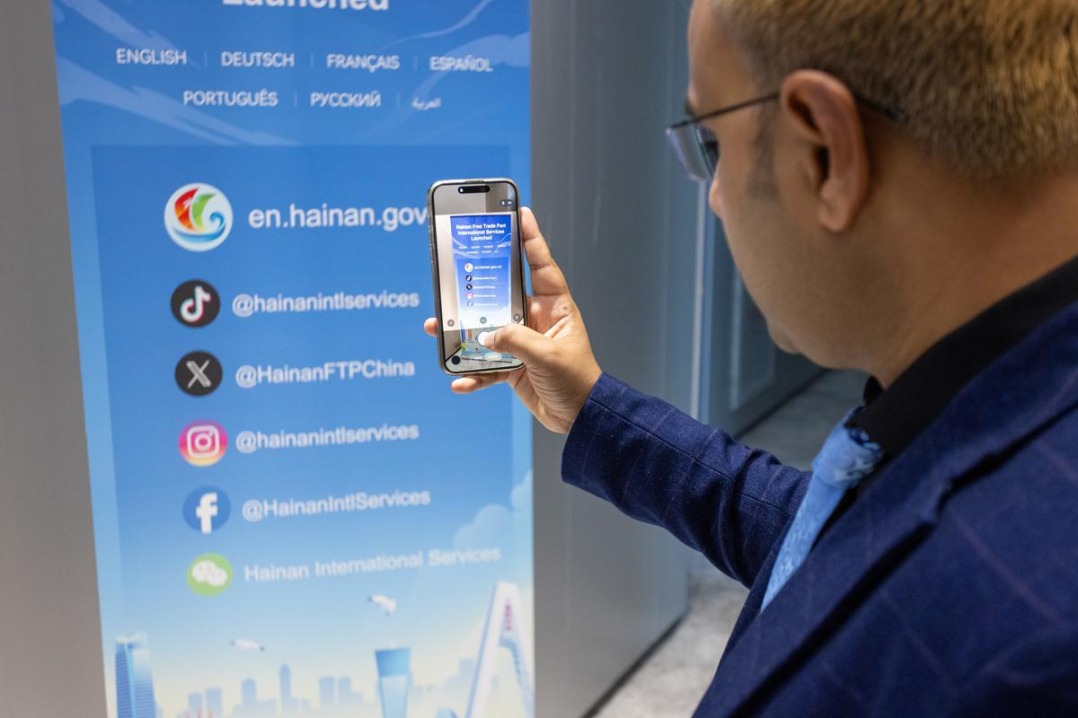Institution launches report on US-China relations and global impact
chinadaily.com.cn | Updated: 2024-01-16 17:27
A conversation unfolded in a traditional Chinese courtyard in Beijing discussed how to establish long-term peace and prevent conflicts between China and the United States on January 5, 2024.
At its Beijing headquarters, Chinese independent think tank Grandview Institution hosts an event where former officials and experts in China-US relations and students from top Chinese universities presented the latest collaborative publication US-China Relations And Their Impact on the Global Order to 2035 with PAX sapiens, a philanthropic foundation focusing on the prevention of predictable and preventable catastrophic risks.

"It is of no problem that we need to pay attention to divergences, but we need to put more efforts into seeking common interests, set common goals and take common actions," the president of Grandview Institution Ren Libo said in his opening remarks.
"I believe that war is always a lose-lose; it is a failure of planning, and governance, and a wanton waste of human resources and potential," PAX sapiens' President Marcel Arsenault described his belief as a philanthropist focusing on global peace-building.
"The US-China relationship is among the most consequential relationships in the world. How the world's two largest economies interact with each other will have a significant impact on global peace and prosperity," the report opens with clear intention and goal to maintain global peace and prosperity through stabilizing the US-China relations.

Cao Qun, an associate research fellow from China Institute of International Studies introduced the four scenarios produced by the report and they are: Drift, War, Blocs and Networks. Avoiding war that could end in nuclear annihilation is a powerful driving force in all scenarios. War could begin in many ways, but how war ends often involves the destruction of national economies, loss of life and property, and a shock to global economic development and stability.
Fu Kuen-chen, special research fellow at Xiamen University speaks at the launch event.
Experts from both sides conducted a frank and open exchange on the Taiwan question which is most likely to cause conflict or even war. "The US must give a clear answer and explanation on whether it can accept a unified China," said Fu Kuen-Chen, a special research fellow at Xiamen University.
By 2035, China-US relations might continue to be intense due to substantial divergences between the two sides. However, benefiting from the establishment of a crisis management mechanism and the resumption of dialogue, China and the US can cooperate in areas with common interests and manage the potential risk of conflicts. "If it goes well, the relationship between China and the US could ease through non-confrontational interaction, "said Zhang Tuosheng, chief research fellow at Grandview Institution.
Arsenault said China and the US need to directly face the differences between the two sides by listening to each other with patience and trying to avoid misunderstanding, which is the first step of problem-solving. He thinks China and the US should promote technological innovation, revitalize the world economy, and seek solutions to common issues faced by the world hand-in-hand, which is the only constructive way to improve bilateral relations.
Trade and economic exchange are fundamental needs among people. With a strong interdependence of trade and economics between China and the US, "we need to seek a way to ‘decouple' trade and economics from national security, not the decoupling of China and the US," said Tu Xinquan, director of China Institute for WTO Studies at University of International Business and Economics said.
Arsenault said voices from the business and entrepreneurs world needed to be heard.
From July 16 to 20, 2023, a total of 25 former political figures, retired military officers, think tank experts and university scholars from China and the United States held a workshop in Bangkok to work on the probable future of China-US relations in 2035. The team spent another four months to complete the editing process of the report.
The 12-month collaboration between the Grandview Institution and PAX sapiens was facilitated by Reos Partners, an international consulting agency that addresses complex social issues by enhancing multi-stakeholder collaboration to achieve systemic change.
According to Adam Kahane, Director of Reos Partners, the project was designed and implemented with the scenarios methodology to produce a set of possible futures for US-China relations in the next decade by experts from both United States and China. This methodology helps prevent people working in the US-China relations from falling into two cognitive biases-induced traps, fragmentation which generates different realities or group thinking which may cause misjudgment from blind spots of a reality shared by both parties.























